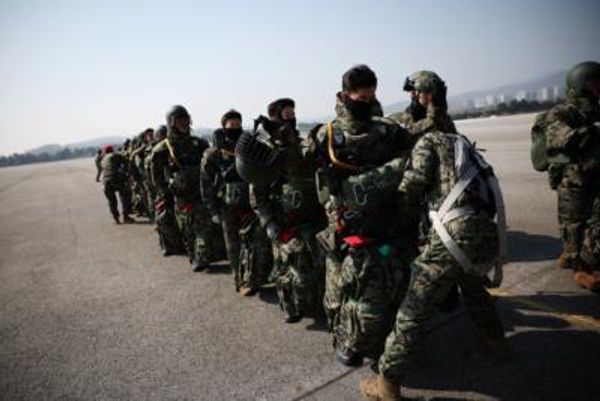
Both party leaders had setpiece events today — the prime minister addressed the Australia-Israel Chamber of Commerce and Anthony Albanese addressed the National Press Club (NPC), a traditional pre-election address Scott Morrison is refusing to do, possibly given he was caught out by cost-of-living questions last time he appeared there.
However, the theme of the day was wages and how Australian workers are falling behind — and fast. The Australian Bureau of Statistics released Wage Price Index (WPI) data for the March quarter this morning, showing wages growth stuck at 0.7%, and 2.4% in the year to March.
That means real wages have fallen, on average, by 2.7% over the year to March given the March inflation result of 5.1%. That was manna from heaven for Albanese, given he has backed wages to increase enough to maintain real wages and argued that wages stagnation is a deliberate policy choice of the government.
Campaign momentum has swung back to Morrison, with polls showing Labor’s primary vote has fallen in recent days.
Albanese’s address to the NPC was his now-standard treatment of how Australia could do better, although he announced that if elected Labor would dump two of the most heavily rorted Coalition programs: the Community Development Grants Program and Regionalisation Fund, together worth about $700 million.
He fired up during questions (which compared with his daily press conferences were decidedly less hostile and contained far fewer yelling News Corp staffers), and gave a strong response when asked about costings of his policies.
Yesterday they stood up and said we’re going to cut the public service even more. You know what that leads to: robodebt. It doesn’t save money, it costs money, because you take humans out of human services and it has devastating consequences. For real people. It costs lives. Lives. As well as over $1 billion to taxpayers.
In his press conference (held in the morning before the WPI figures were released) Morrison was — finally — asked about Australia’s surging COVID infection and death rates, and immediately sought to deploy it as a wedge, declaring that under the Coalition there would be no more lockdowns (which, of course, are not his call anyway, but under the control of state governments):
We are living with COVID, and not going back to those daily press conferences of people talking about COVID every day and putting the threat of shutdowns and lockdowns and interfering in people’s lives again. That is not what I’m going to do if I am reelected on Saturday. I will not drag Australia back to those times again, and I have noticed that Anthony Albanese is keen to get back into that type of approach, and that is not the approach I have taken.
That was on a day with 53 reported deaths from COVID and more than 55,000 cases.
COVID is also going to have a direct impact on the election. The Australian Electoral Commission announced this afternoon that due to labour shortages, it may not be able to staff polling booths in regional areas on Saturday — specifically in the electorates of Capricornia, Flynn, Kennedy and Leichhardt in Queensland, Barker and Grey in South Australia, and Durack and O’Connor in the west.
“Recruitment difficulty is exactly what we advised could occur, both earlier in the pandemic and in the early stages of the election period, and why we’ve been urging people to assess all voting options,” commissioner Tom Rogers said.
“Current labour shortages in regional areas have been well documented. No front-line service has been immune to resourcing difficulties and we’re running the nation’s biggest in-person, manual event.”
The AEC is still desperately trying to find staff for election day, and is considering amalgamating polling booths, which on election day are staffed by a vast army of workers hired for the day.







